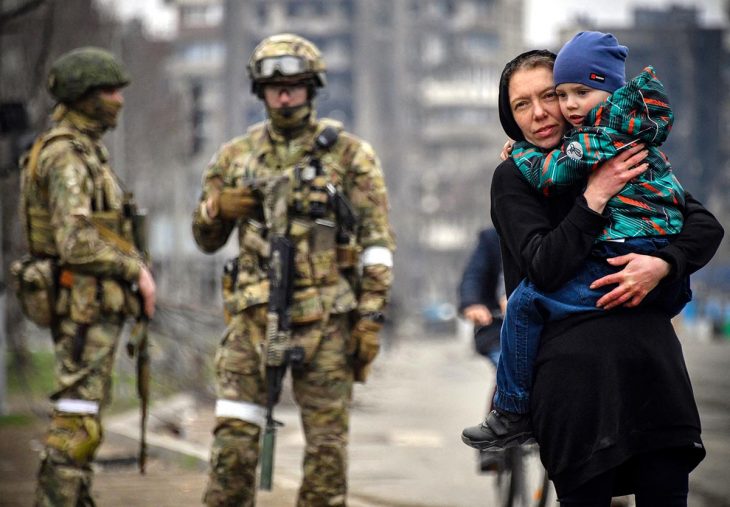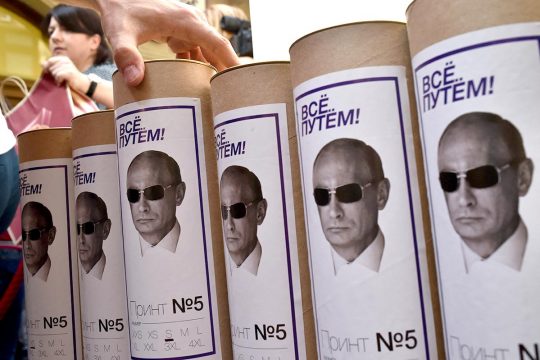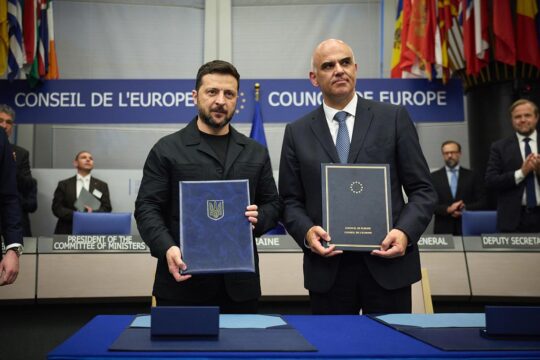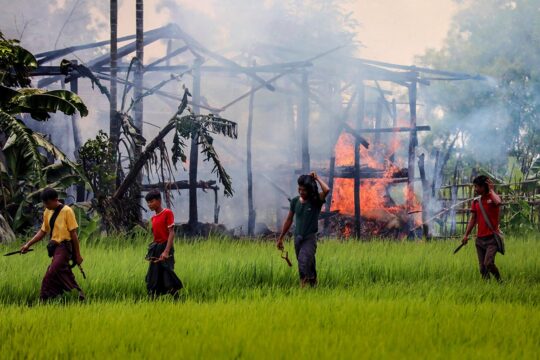JUSTICE INFO: You've said that on the evidence that the Commission of Inquiry on Ukraine has gathered so far, war crimes have been committed by Russian forces. What about crimes against humanity and genocide?
ERIK MØSE: So far, we have not found evidence substantiating those crimes. We have been investigating the four areas where the Russians were in late February and March and then withdrew from. Our investigation in this report is based on what we have so far found in those four areas in that timespan.
But you mean to continue and expand the investigation, and do not rule out the possibility that crimes against humanity may have been committed?
We will continue our investigations in the four areas, as well as expanding both geographically and in terms of more topics. It will be the evidence that decides which crimes we find, according to our standard of fact-finding.
You gave an oral update to the Human Rights Council in September, and you just submitted a written report to the UN General Assembly. Are you expecting anything or asking anything of the General Assembly and of States?
There are no general recommendations or any requests by the Commission in its report to the General Assembly. But we have recommended enhanced coordination of international and national accountability efforts to improve effectiveness and prevent harm to victims and witnesses.
Can you elaborate on the need for coordination due to the number of judicial actors involved in trying to gather evidence in this war: Are you talking about just exchanging information or actually trying to articulate some kind of justice process?
There are many actors with different mandates – some general, some specific, some criminal, some relating to human rights issues. As their tasks are different, you can’t really envisage some kind of coordination in the strict sense. But in the spirit of exchanging information and being in contact with other bodies which are particularly relevant to each organ, one should avoid loss of efficiency and re-traumatization of victims and witnesses. It would be for each entity to see what it can do, based on its mandates and its method.
What about the Commission, who are you coordinating with?
We are, for instance, in contact with the International Criminal Court (ICC) and the Prosecutor General of Ukraine. We have contact at regular intervals with them when the need arises.
Ukraine has already started some trials. The UN Human Rights Monitoring Mission in Ukraine produced a report recently which talks mostly about Russian crimes, but also expresses some concerns about fair trial rights in Ukraine. Are you concerned also?
We have not expressed any view on the issue of fair trial rights in our oral update or in our written report. But such issues may arise as we are continuing our investigations, which is an on-going process. Also other topics will be considered for possible inclusion in our concluding report in March next year.
More generally, I think everyone would agree that any trial has to fulfil the requirements of a fair trial laid down by international law, including Article 6 of the European Convention on Human Rights and Article 14 of the UN Covenant on Civil and Political Rights.
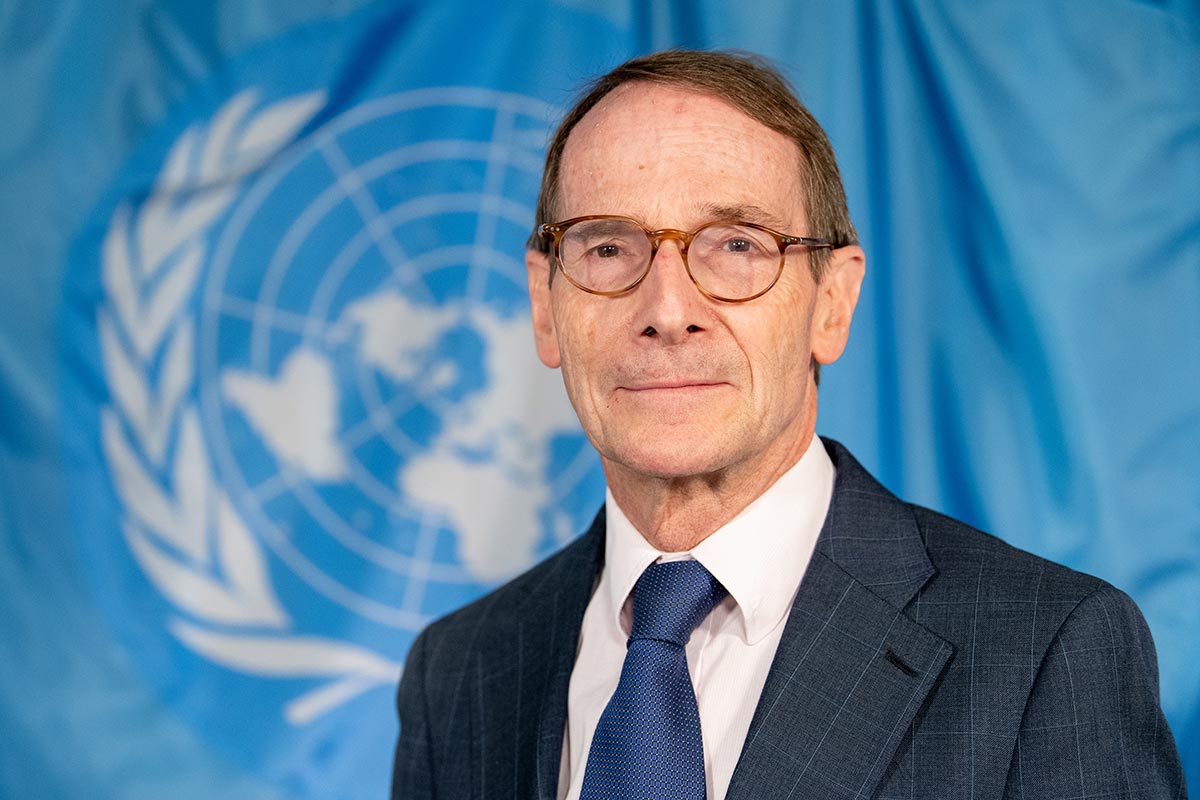
Do you see a possible time frame for the first universal jurisdiction trials, or trials at the ICC? How do you see this working?
For this commission, the task is simply to complete its mandate as requested by March next year. In that report, as you know, in addition to the fact finding and referring to different crimes or human rights violations, we will also seek, where possible, to identify persons and entities that have committed such acts. We are also asked in the Resolution to come up with general recommendations as to accountability. And there are many possibilities. It will then be for the Human Rights Council to look at our recommendations, which we have not yet formulated, and discuss how to follow them up.
Do you have an idea of the kind of lines those recommendations might take?
The accountability measures could be international or national. Regarding the national ones, you could imagine that the ordinary courts in Ukraine continue to deal with these kind of cases, but you could also argue that maybe there should be another mechanism, a more specific mechanism in Ukraine, a special court or something at the national level. These are ideas that have been launched in the international discussions, that's why I am providing these lines, as you call them, not showing what the Commission will propose, but what is in principle possible or what is being discussed.
As regards an international follow up, the ICC is clearly a possible body which may consider such cases. The question is how many cases they can deal with. And then it may be asked whether you should have other ad hoc international courts of a criminal nature or a specific court dealing only with the crime of aggression, which is something that has been launched as an idea and is being discussed in international circles. So this is just the broad overview of what the Commission will have to consider.
Once your final report has been filed, what happens? Is the Human Rights Council going to share any evidence that you gathered with other bodies?
In the first Resolution from March this year, we are asked not only to collect evidence, but also to preserve it, to keep it safely. And therefore, the evidence we are collecting will be available for those who request such evidence with a view to accountability.
There are three members of the Commission and you have some researchers and investigators in Vienna. Do you have enough?
We are three commissioners and have our secretariat in Vienna composed of 24 persons. Amongst those persons are investigators and other specialists relevant to our work. And we will complete our mandate with the resources we have.
Have you set priorities now for the rest of the mandate?
We have, of course, certain priorities. We are in particular trying to look at selecting events based on their gravity, whether there is an established pattern, where it is possible to gain access to victims, witnesses and documentation, and, of course, access to that geographical location.
On page 17 of the report, the Commission says it “will gradually devote more of its resources to the broader temporal, geographical, and thematic framework set forth in Resolution 49/1. Issues of interest will include possible violations in filtration camps, alleged forced transfers of people, conditions under which expedited adoptions of children are allegedly taking place, as well as changes in local administration and so-called referenda, the consequences of which are becoming clearer given recent events”. It also says we will continue to act in a victim-centered way, which is something we have stressed since the beginning.
You say the “so-called referenda”. Are you not getting into political territory there?
This is just what is stated in the report. These are simply some of the issues that we will try to investigate to the extent there is sufficient evidence that we can use to go into them.
Have you tried to contact the Russian authorities?
Yes, we have. And they have so far not responded or been at our disposal for such cooperation, but we will continue to seek contact with them.
What about the authorities in the occupied regions in the east of Ukraine?
The situation is similar. We have reached out and not yet received any reactions.


